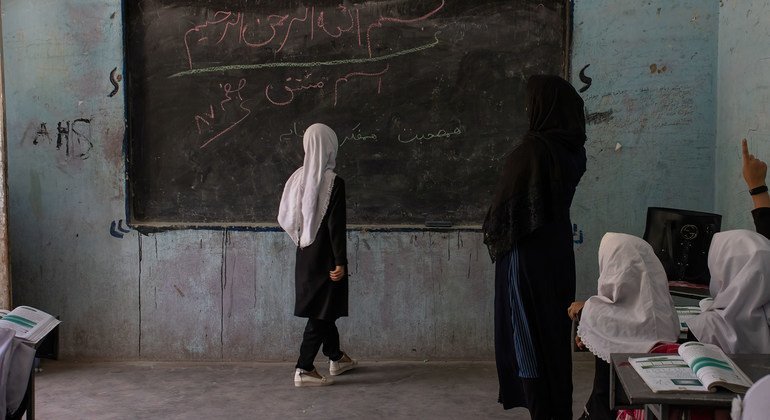On 15th August 2021, the Taliban took control of Kabul after President Ashraf Ghani fled Afghanistan. On Monday, the Taliban completed one year of ruling Afghanistan. In this one year, the economy and crisis of women’s rights in Afghanistan deteriorated immensely.
According to UN news, Afghanistan is the only country where girls are banned from pursuing education and participating in political matters. The ramifications of such practices have exposed Afghanistan to a humanitarian crisis and increased gender-based violence in the country.

The crisis of women’s rights in Afghanistan.
UNICEF’s recent analysis reports restricting girls from pursuing secondary education costs Afghanistan 2.5 per cent of its annual Gross Domestic Product (GDP). However, the UNICEF analysis does not cover other non-monetary impacts this might’ve on Afghanistan in the coming future. Increase in early marriage and childbearing, acts of violence and abuse against women, are a few concerns among many.
With girl rights under attack, UNICEF plays a pivotal role in the lives of millions of children struggling with poverty and its vicious circle. In addition, before the Taliban’s takeover of Afghanistan, UNICEF provided vital health and hygiene support to adolescent girls at schools. However, since the ban on girl child education, UNICEF is struggling to reach girls for anaemia prevention and menstrual health support.

UNICEF’s efforts and support to combat the humanitarian crisis.
In the crisis-struck country, over 170 UNICEF mobile health and nutrition teams are operating, including the hard-to-reach mountains that were previously inaccessible. According to the UNICEF analysis, more than 3 million children are at risk of acute malnutrition and 1 million children at severe acute malnutrition.
“Girls’ rights are under attack; their childhoods are marred by deprivation. That is why, despite challenges in the operating environment, UNICEF is scaling up, delivering, and achieving results like never before.”

After a destructive earthquake on June 22, Afghanistan battles water-borne diseases like cholera and diarrhoea. Since then, UNICEF is transporting clean freshwater to 20,000 people to provide a healthy lifestyle. Since the Taliban’s rule in Afghanistan, UNICEF has supported 5.36 million children’s education across Afghanistan and mental health support to over one million children and caregivers.
The act to ban girls from receiving education violates the fundamental right to education and exposes girls to trafficking, abuse, forced marriage, and other hindrances to women’s rights.













